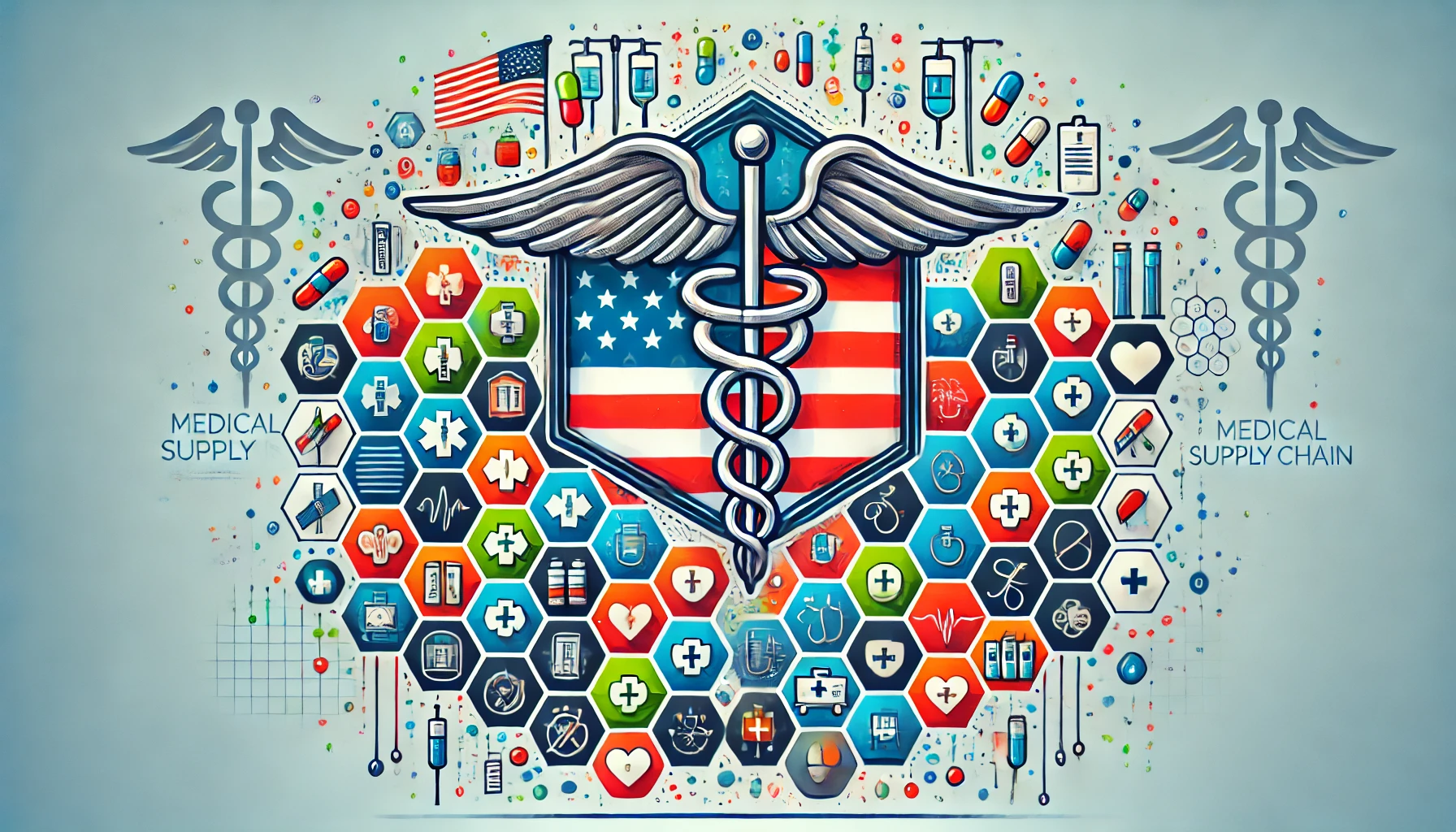In the wake of Hurricane Helene’s devastating impact on a critical manufacturing plant in North Carolina, the United States grapples with another medical supply crisis. This time, it is a shortage of essential IV fluids that threatens patient care across the nation. The incident serves as a stark reminder of the fragility of our medical supply chain and the urgent need to treat these vital resources as a matter of national security.
The plant in question, operated by Baxter International, produces about 60% of the country’s IV fluids. This concentration of production in a single location has created a dangerous single point of failure in our healthcare system. As hospitals begin rationing supplies and postponing surgeries, we witness firsthand the consequences of failing to build resilience into our medical supply infrastructure.
Not an Isolated Incident
This is not an isolated incident. The United States has faced recurring shortages of critical medications and medical supplies for over a decade. Since 2012, the FDA has been issuing annual reports on drug shortages, with the current list exceeding 100 items. From cancer drugs to antibiotics and even common pediatric analgesics, these shortages have compromised patient care and forced healthcare providers to make difficult decisions about resource allocation.
 The economic implications of treating medical supplies as a national security issue are significant but necessary. While initial investments in domestic manufacturing, supply chain diversification, and stockpiling may be substantial, the long-term benefits outweigh the costs. By reducing our vulnerability to supply disruptions, we can avoid the economic fallout of healthcare crises, including increased healthcare costs, lost productivity, and the human toll of compromised patient outcomes.
The economic implications of treating medical supplies as a national security issue are significant but necessary. While initial investments in domestic manufacturing, supply chain diversification, and stockpiling may be substantial, the long-term benefits outweigh the costs. By reducing our vulnerability to supply disruptions, we can avoid the economic fallout of healthcare crises, including increased healthcare costs, lost productivity, and the human toll of compromised patient outcomes.
Required to Secure Our Supplies
To address this critical issue, we must implement a comprehensive strategy:
Redundancy in Manufacturing: We must incentivize the establishment of multiple manufacturing sites for critical medical supplies within the United States. This approach would eliminate single points of failure and enhance our ability to respond to regional disasters or disruptions.
Onshoring Production: Bringing manufacturing back to U.S. soil is crucial for ensuring a stable and secure supply of medical essentials. This move would bolster our national security, create jobs, and stimulate domestic economic growth.
Strategic Stockpiling: Developing and maintaining adequate stockpiles of essential medical supplies is vital for managing unexpected surges in demand or supply chain disruptions. This requires ongoing assessment of national healthcare needs and coordination between government agencies and healthcare providers.
International Arrangements: While prioritizing domestic production, we must also establish reliable international partnerships to supplement our supply in times of crisis. These arrangements should be subject to rigorous FDA quality and safety standards to ensure the integrity of imported supplies.
Economic Incentives: The government should implement targeted incentives to encourage manufacturers to produce essential but less profitable medical supplies. This could include tax breaks, grants, or guaranteed purchase agreements to ensure the economic viability of these critical production lines.
We cannot overstate the impact of supply shortages on healthcare delivery. Clinicians find themselves unable to provide optimal care, leading to increased patient morbidity and mortality. Patients suffer not only from the immediate effects of delayed or substituted treatments but also from the long-term consequences of suboptimal care. This scenario is unacceptable for a nation that prides itself on having one of the most advanced healthcare systems in the world.
Time for Reforms
As we reflect on the current IV fluid shortage and the long history of similar crises, it is clear that our approach to medical supply chain management is in dire need of reform. We must recognize that the availability of essential medications and medical supplies is as crucial to our national security as any military asset. The health and safety of our citizens depend on our ability to maintain a robust and resilient medical supply infrastructure.
The time for action is now. We call upon government leaders, healthcare policymakers, and industry stakeholders to implement these critical changes. By hardening our medical supply chain, diversifying our sources, and treating these resources with the strategic importance they deserve, we can ensure that our healthcare system remains strong and resilient in the face of future challenges.
Our nation’s health security is not just a matter of medical preparedness but a fundamental component of our national security strategy. Let us act decisively to protect this vital infrastructure and safeguard the health of all Americans.
Sources:
U.S. Races to Replenish Storm-Battered Supplies of IV Fluids at Hospitals, NY Times, October 9, 2024
Deadly Medication Shortages: Time for a Fix, Barry P Chaiken, MD, May 23, 2023









0 Comments